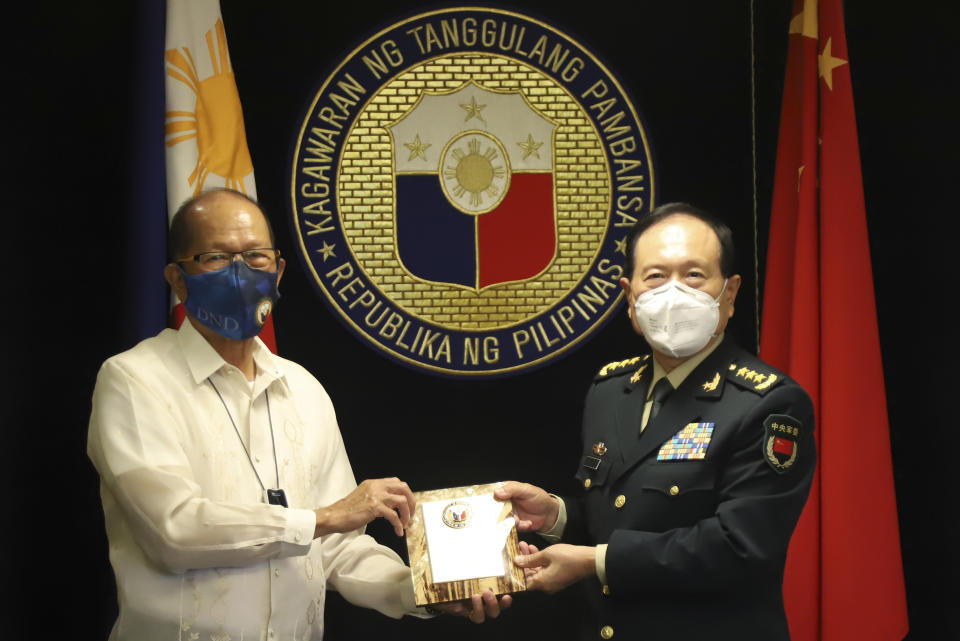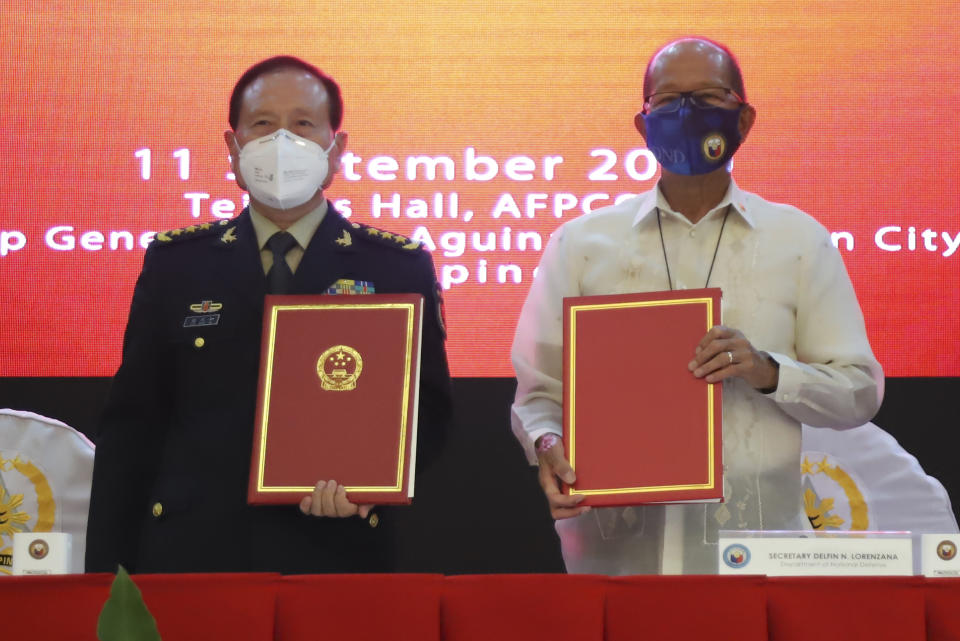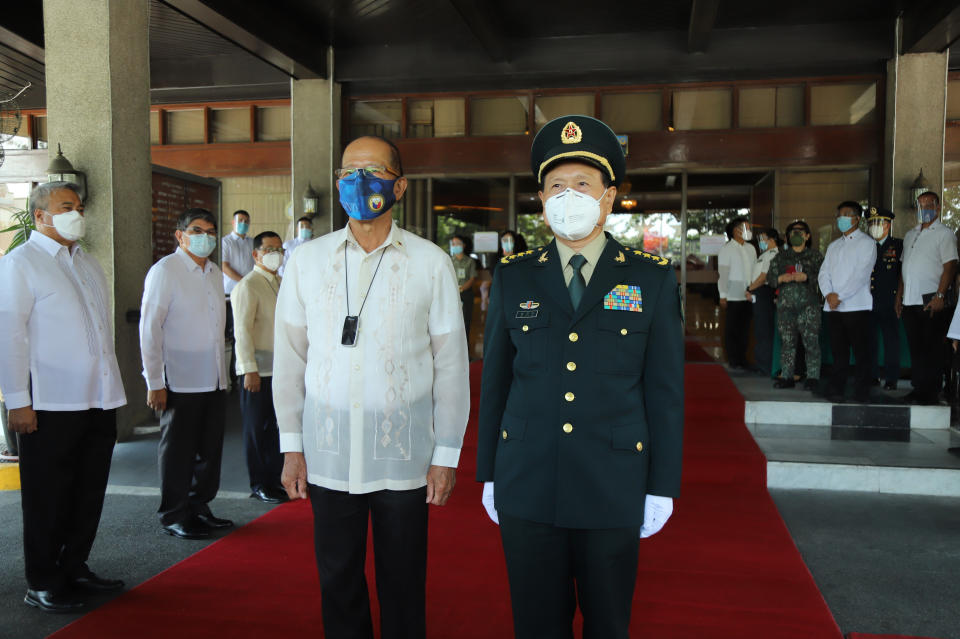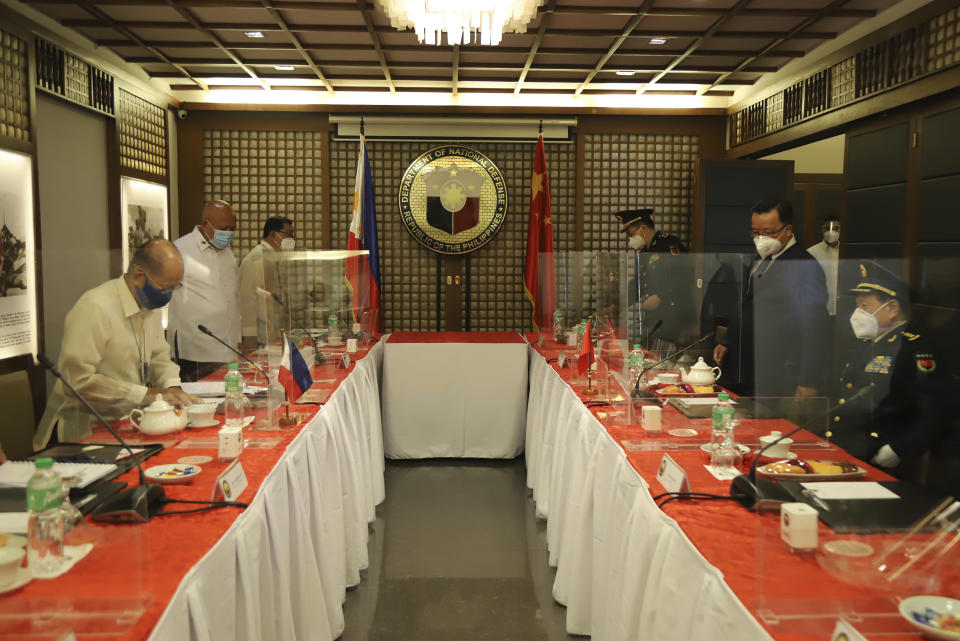China, Philippine defense chiefs discuss territorial dispute
MANILA, Philippines (AP) — The Philippine defense chief told his Chinese counterpart on Friday that Manila will adhere “without any possibility of compromise” to a 2016 international arbitration ruling that invalidated most of Beijing's rival claims in the South China Sea, according to a Philippine statement about the meeting. But the statement was later withdrawn and the contentious comment removed.
Chinese Gen. Wei Fenghe is in Manila for talks with Defense Secretary Delfin Lorenzana and President Rodrigo Duterte. His visit follows a series of protests by the Philippines over China’s increasingly aggressive actions in the busy waterway.
The territorial disputes between the countries remain unresolved, although their ties have improved greatly under Duterte, who has sought investment, infrastructure funding and military assistance from China.
After the defense chiefs met, the Philippine defense department issued an initial statement saying Lorenzana had reaffirmed Philippine adherence “without any possibility of compromise” to the arbitration ruling that invalidated China’s territorial claims in the sea on historical grounds.
China refused to participate in the arbitration by a U.N.-backed tribunal, and then dismissed its ruling as a “sham” and continues to defy it.
The statement said the Philippine military will continue “to conduct routine, legitimate maritime patrols in the West Philippine Sea and challenge any activities that infringe on Philippine sovereignty, sovereign rights and jurisdiction,” using the Philippine name for the portion of the South China Sea closest to it.
“While we may not agree on some issues, as good friends and neighbors we remain firm in finding ways to improve our relations,” it quoted Lorenzana as telling Wei.
The defense department, however, later recalled the statement without any explanation and replaced it with a version that removed Lorenzana’s assertive remarks. The new statement said the defense chiefs discussed “how to avoid misunderstanding and to resolve differences amicably” in the South China Sea.
Wei met later with Duterte, but officials did not immediately release details of their talks. After taking office in 2016, Duterte took steps to improve relations with China that had been severely strained under his predecessor due to the territorial conflicts.
Vietnam, Malaysia, Taiwan and Brunei also have overlapping claims to the waterway, one of the world’s busiest. Indonesia has also had confrontations with Chinese fishing fleets in coastal waters facing the South China Sea.
Although the United States lays no claims to the disputed waters, it has challenged China’s sweeping territorial claims by deploying warships and fighter jets for what it calls freedom of navigation and overflight patrols.
In July, U.S. Secretary of State Mike Pompeo declared that Washington regards virtually all of China’s maritime claims in the area outside of its internationally recognized waters to be illegitimate. Although the U.S. officially remains neutral in the disputes, the Trump administration in effect sided with China’s rival claimants.
China accused the U.S. of sowing discord in the region, and last month reportedly test-fired two missiles in the South China Sea during live-fire exercises.




